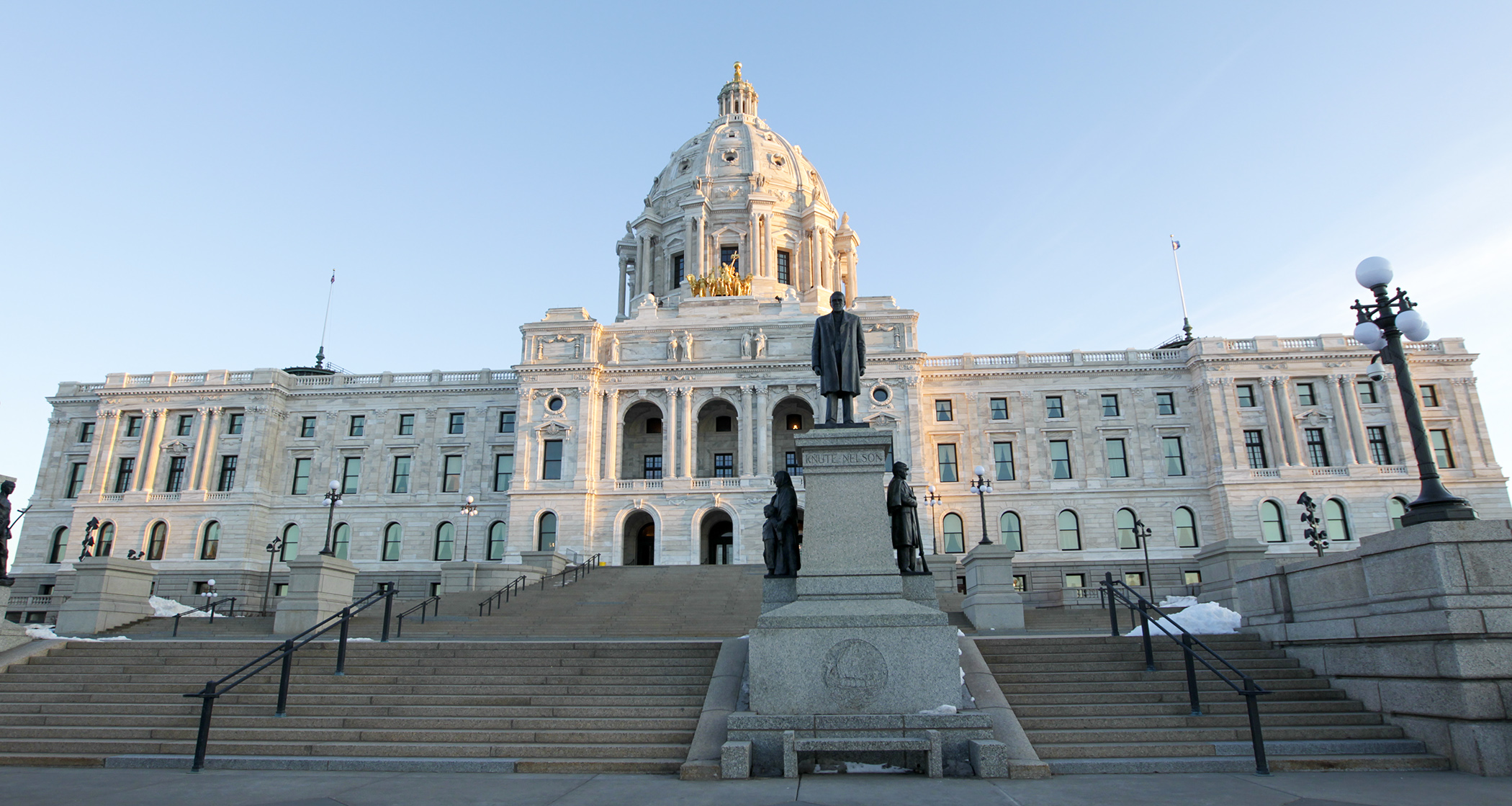Omnibus state government bill aims to tighten reins on fraudulent spending

Going after fraudulent behavior through withholding payments and added whistleblower protection are key aspects of the omnibus state government policy bill.
The proposal would also establish a retained savings program to encourage agency innovation and cost-savings, modify the state’s small business procurement program, repeal inactive legislative commissions and honor the giant beaver.
The House State Government Finance and Policy Committee received a walkthrough of a delete-all amendment to HF1837 Tuesday. Amendment offering and committee action on the bill is scheduled Thursday.
Rep. Ginny Klevorn (DFL-Plymouth), the committee co-chair, is the bill sponsor.
Among the provisions, “the head of any state agency may withhold payments to a program participant in any program administered by that agency if the agency head determines there is a credible allegation of fraud under investigation and the program participant is a subject of the investigation.”
“This is an important piece of the governor’s anti-fraud package that would provide the state with an important tool to safeguard public funds,” said Brita Reitan, deputy commissioner at Minnesota Management and Budget.
A government entity would be permitted to disclose any data to another government entity or law enforcement if the data relates to public program fraud.
State employees would receive better whistleblower protection when reporting state program information, including suspected fraud, to their employer, a legislator, constitutional officer, any governmental body, the Office of the Legislative Auditor or law enforcement.
“In the future we hope to also expand these protections to our local government folks, but we see that there’s not broad agreement for that now and we’re trying to address things at the state level,” said Devin Bruce, director of legislative and political affairs at the Minnesota Association of Professional Employees.
State employees would be required — current law is encourage — to promptly report violations or suspected violations of laws or rules governing grants to their supervisor or manager, Department of Administration or Office of the Legislative Auditor. If the employee notifies their supervisor or manager, the commissioner or a commissioner's designee, that person must notify the legislative auditor’s office.
Other notable provisions would:
- designate Castoroides ohioensis, commonly known as the giant beaver, as the state fossil;
- designate Ursa Minor as the state constellation;
- establish a retained savings program to encourage state agencies to innovate and identify efficiencies and cost savings;
- change the name of the Office of Administrative Hearings to the Court of Administrative Hearings;
- require state agencies to post an organizational chart online that includes the names and contact information for top officials;
- require state grant recipients to post on their website the names and contact information for the grantee’s leadership and who will manage and oversee the grant;
- let the state Office of Ombudsman for Long-Term Care use unmarked motor vehicles;
- prohibit state entities from agreeing to certain contract terms, including automatically renewing state funds in subsequent fiscal years;
- let a retired state employee’s spouse purchase coverage for themselves under the State Employee Group Insurance Program if the retiree loses eligibility by enrolling in Medical Assistance, and has a disability that satisfies the categorical eligibility requirements of the federal Supplemental Security Income program;
- modify state personnel management statutes; and
- eliminate the Legislative Commission on Minnesota Sports Facilities, Legislative Commission on Housing Affordability, Driver and Vehicle Systems Oversight Committee and Legislative COVID19 Response Commission. Each no longer meet.
***
The following are selected bills that have been incorporated in part or in whole into the omnibus state government policy bill:
- HF2 (Davis)
- HF23 (Robbins)
- HF289 (Quam)
- HF791 (Myers)
- HF927 (Nash)
- HF1059 (Nash)
- HF1060 (Nash)
- HF1062 (Nash)
- HF1151 (Nash)
- HF1172 (Myers)
- HF1240 (Quam)
- HF1809 (Davis)
- HF1836 (Klevorn)
- HF1837 (Klevorn)
- HF1910 (Klevorn)
- HF1956 (Anderson, P.H.)
- HF2020 (Howard)
- HF2232 (Klevorn)
- HF2451 (Klevorn)
- HF2514 (Klevorn)
- HF2515 (Klevorn)
- HF2713 (Klevorn)
- HF2783 (Klevorn)
Related Articles
Search Session Daily
Advanced Search OptionsPriority Dailies
Speaker Emerita Melissa Hortman, husband killed in attack
By HPIS Staff House Speaker Emerita Melissa Hortman (DFL-Brooklyn Park) and her husband, Mark, were fatally shot in their home early Saturday morning.
Gov. Tim Walz announced the news dur...
House Speaker Emerita Melissa Hortman (DFL-Brooklyn Park) and her husband, Mark, were fatally shot in their home early Saturday morning.
Gov. Tim Walz announced the news dur...
Lawmakers deliver budget bills to governor's desk in one-day special session
By Mike Cook About that talk of needing all 21 hours left in a legislative day to complete a special session?
House members were more than up to the challenge Monday. Beginning at 10 a.m...
About that talk of needing all 21 hours left in a legislative day to complete a special session?
House members were more than up to the challenge Monday. Beginning at 10 a.m...